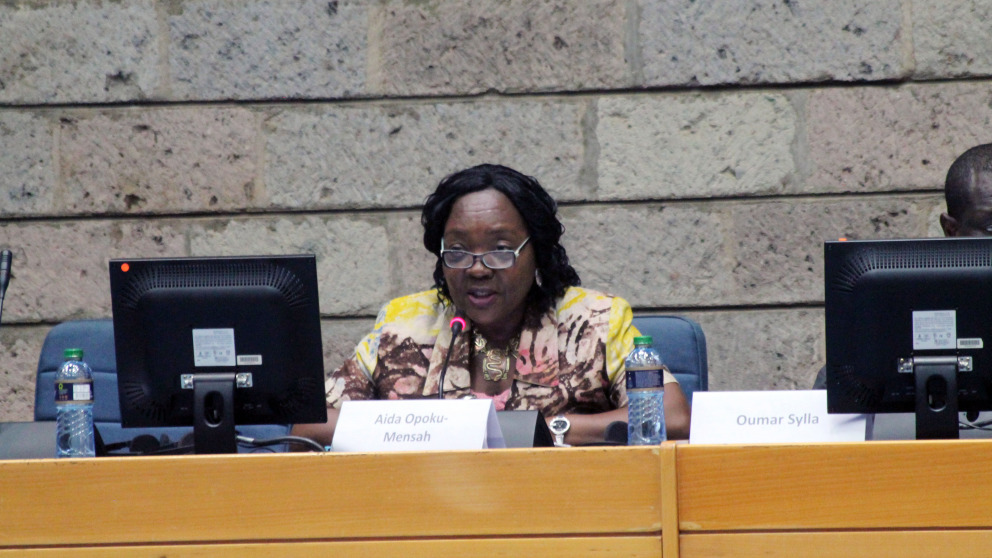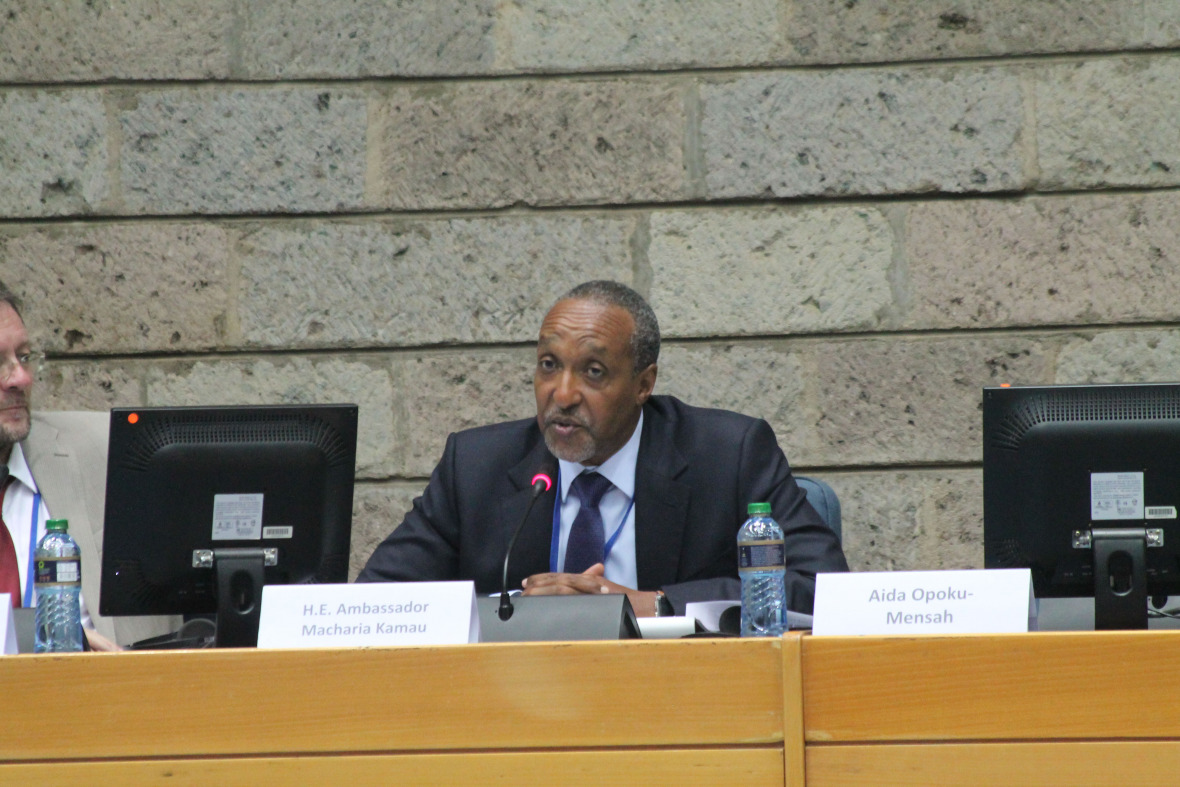Headline:
“We need to involve civil society in the implementation of the SDGs”: IASS and Partners Discuss Next Steps in Nairobi
2030 Agenda for Sustainable Development

The Sustainable Development Goals (SDGs) that were adopted in September aim to protect soils and other natural resources. We now need to ask how these ambitions can be achieved in practice and what mechanisms are appropriate for monitoring progress. This was the focus of a high-level event organised by the IASS and partners at a meeting of the Global Land Tool Network (GLTN) on 3 November in Nairobi. The GLTN is a coalition of organisations committed to reducing poverty through land reform, better land management and secure land tenure.
The participants all agreed that the SDGs should be implemented quickly and in an innovative way. Macharia Kamau, Kenya’s permanent representative at the United Nations and co-chair of the SDG negotiations, called the adoption of the goals a “significant achievement”. The path to this achievement was also remarkable because government representatives had worked together with various actors to arrive at a consensus. “That may have made the process more difficult, but it also made it more valuable,” Kamau said. Alexander Müller from the Council for Sustainable Development emphasised that an integrated approach is vital to the management and governance of natural resources. As he explained, “the SDGs are full of land and natural resources, and many SDGs can only be achieved if we have appropriate land use and governance.” Joan Clos, Executive Director of UN Habitat, highlighted the fact that land rights are clearly related to development, power asymmetries and conflict, as well as playing a decisive role in ongoing processes of urbanisation. In the course of discussions, the idea of supporting implementation with a thematic review developed specifically for land and soils was repeatedly mooted.

The participants acknowledged that the goal of an integrated and participative implementation and review process for the 2030 Agenda is a major political challenge. It behoves governments, civil society and the United Nations to rise to this challenge. Aida Opoku-Mensah from the United Nations Economic Commission for Africa (UNECA) claimed that innovative approaches to cooperation with participating groups are essential. However, for Jes Weigelt, head of the Global Soil Forum at the IASS, a meaningful review and follow-up process will only be possible if political asymmetries are addressed. We therefore need to involve civil society intensely in the implementation process, and UN member states need to ensure an enabling environment for participation. Gertrude Kenyangi from the Ugandan NGO Support for Women in Agriculture and Environment (SWAGEN) added that civil society organisations should be seen as allies rather than obstacles: “We can support implementation, provide data and demand accountability on the part of governments.”
In her closing comments, moderator Ivonne Lobos Alva (IASS) described the event as an important platform for highlighting the role of natural resources, land and soils in the implementation of the 2030 Agenda. She invited the participants to continue to cooperate with the IASS to form a strong alliance to support and monitor the process of implementing the SDGs. The event was organised by the IASS in cooperation with UN Habitat, the UN Environment Programme (UNEP), the Landesa Rural Development Institute, the Global Land Indicators Initiative (GLII) and the GLTN. It was supported by the Federal Ministry for Food and Agriculture. Eighty representatives of governments, the UN, civil society and academia took part.
For more information:
- Report and photos from IISD Reporting Service
- Video statement by Macharia Kamau, Kenya’s permanent representative at the United Nations, on the implementation of the SDGs
06.11.2015
